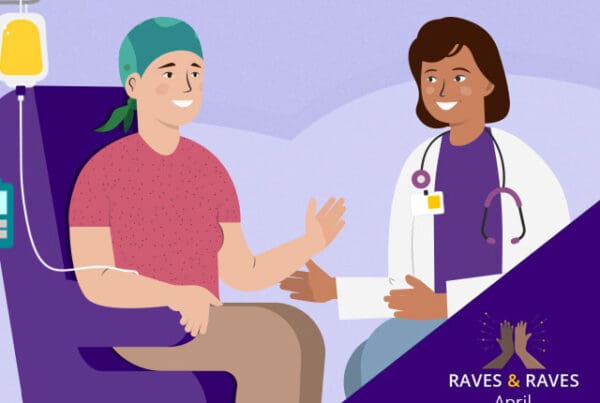Highlights | Being a leader during uncertain times
- Retired Lieutenant General Nadja West visited UW Medicine to share her knowledge and insights of how to lead a team during times of crisis.
- Unity, transparency and empathy are essential traits that successful leaders must have.
- Leaders must practice self-care before they can effectively help their team.
A retired Lieutenant General, Nadja West is the 44th Surgeon General of the U.S. Army, the former commanding general of the U.S. Army Medical Command and the first African American woman in the Army’s history to achieve the rank of Lieutenant General — and no stranger to leading people through difficult situations.
West recently visited UW Medicine and discussed what it means to be a leader, how to effectively lead, and above all, how to be a leader in times of crisis.
How can a leader support their team in times of crisis?
The past few years have been tumultuous in many ways. As we progress through this period, many employers and organizations are experiencing increased discomfort, disorganization, frustration, fatigue and more from their employees.
“To say that these are uncertain times and that we’re going through a crisis is an understatement,” says West. “We’ve seen the stagnating effect of political strife. You can’t swipe without seeing horrific acts of social injustice. A record number of severe weather events. The pandemic; but more importantly, in its course, the loss of the lives of 3.5 million human beings.”
It’s hard to imagine there isn’t a person within the workforce who hasn’t been touched by one of these many tragedies. As working people continue to want a safe and understanding place of employment, oftentimes, these employees are looking to their leadership during these periods of crisis.
“Despite everything, there is a reason for encouragement,” West says. “Every generation has their own brand of crisis and uncertainty. You, as a leader, are a source of optimism.”
Through this optimism, West urges that now, more than ever, we need leaders who can work together, have an abundance of empathy and a desire for unity — vital leadership qualities during times of crisis.
What does it mean to be a good leader?
No two leaders are the same — and that’s OK. West references the Army’s definition of leadership to demonstrate the commonality leaders must have to successfully direct a team.
“The Army defines leadership as the activity of influencing people by providing purpose, direction and motivation to accomplish a mission,” West says. “Leaders influence others to achieve an end goal. That’s everyone. We can all influence our families, our government.”
Through this, West emphasizes that we are all leaders at some level, even if we’re not officially in charge. Everyone has an influence on those around them and can become inadvertent leaders through their choice of words and their actions.
What are the qualities of a good leader?
West lists several qualities of a good leader, including the required understanding of one’s organization and its mission, the needed expertise within their field, the familiarity with the people within their organization and being the grounded, kind influence to everyone they lead.
“You shouldn’t tell the experts how to do their jobs, but instead remind them collectively what we stand for as an organization,” West says. “It’s important that every individual understands that their job is important to make that mission. We need everyone. Everyone is important. No one is better than the other — we just have different roles to reach a shared goal.”
It can be hard to know everything that happens within a team, but West notes that situational awareness and focusing on the organizational mission can help a team stay grounded.
Above all, the kind of person the leader is will influence their leadership. Leaders must possess or cultivate empathy, make a true effort to understand those they lead and treat people with dignity and respect. This will give the team a sense of belonging, which can often feel fractured in times of crisis.
“A crisis can cause deviation from the course,” West says. “It can cause disruption. Purpose can be blurred. A leader ensures everyone understands what they must do.”
How to lead through uncertainty
West’s insights on leadership through times of crisis can ultimately be condensed to the following statements:
- Leaders must have true character, be empathetic and be transparent.
- Leaders must over-communicate and also be willing to listen and receive feedback from their team. Everyone is important.
- Leaders must have humility: It’s okay to not know the answers. This is why we have a diverse team with different perspectives who can work together to find a solution.
- Leaders must be optimistic and remember: their people are the most valuable asset.
Additionally, one of the most vital qualities of being a leader, especially though times of crisis, is dedication to self-care. West references the airline oxygen mask example: In case of emergency, always put your mask on first before helping those around you.
“There is a limit to what you can do,” West says. “Self-care. Take time out for yourself. Give yourself and others a break so you can get back into the fight. Understand what you need to do, what you need to know, and who you need to be to be a leader. It all starts with you.”
West was a Hauser Leader at the Harvard Kennedy School Center for Public Leadership from 2019-2021 and is currently a Distinguished Fellow of the Fuqua/Coach K Center on Leadership and Ethics.
Photo Caption: © Luis Valesco / Stocksy United


